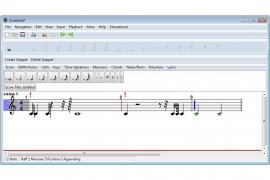
Once done, it’s a good idea to reboot your system to apply all changes directly:
RASPBERRYPI DENEMO INSTALL
It will take a while to download and install all the new package (over 1000 in my case).
RASPBERRYPI DENEMO UPDATE
It’s a good idea to update it step-by-step, one version at a time. Edit this line and replace the current Debian code name with the one you want to install, for example:.You’ll see one or more lines like this:.You can do this on Desktop, on Raspberry Pi OS Lite or even via an SSH connection, it doesn’t matter. If anything is broken after the installation, you’ll still have a way to easily come back to the current state of your system. But I also have an alternative to upgrading without commands if you are averse to it :).īefore going further, creating a backup of your SD card might be a good idea. The easiest way to upgrade your system to a new version is to change the repositories used by APT. APT checks for new updates available on the repositories and suggests installation. Updating sources.listĪs mentioned in the introduction, we use APT to update all of the packages on the system (either directly or with a graphical tool intermediate). That’s why you can now update to test it. Raspberry Pi OS Bookworm is not yet considered stable, but the release date is coming soon and repositories for Raspberry Pi OS are already up and running.

RASPBERRYPI DENEMO HOW TO
In this tutorial, I’ll show you how to upgrade your system by editing the file and installing all of the new packages.Ī tablet that gives you access to all the Raspberry Pi ports you need, with a simple interface to start programming easily. The URL are set in /etc/apt/sources.list. By using repositories for another version, it’s possible to upgrade to the latest one without losing any data. Raspberry Pi OS used package repositories to download new updates for installed software. If you are behind and need to update your Raspberry Pi OS or want to try the next version (“Bookworm” e.g. The latest Raspberry Pi OS version available for download is currently “Bullseye”, based on Debian 10. Raspberry Pi OS is based on Debian and follows its versions.

Keep in mind that the Raspberry Pi Foundation recommends installing Bullseye from scratch, instead of upgrading it like explained in this tutorial. Note: This guide has been updated in November 2021, to explain how to upgrade RPI OS Bullseye to Bookworm, but you can use the same tips to upgrade Buster to Bullseye, that is now officially the stable version.


 0 kommentar(er)
0 kommentar(er)
